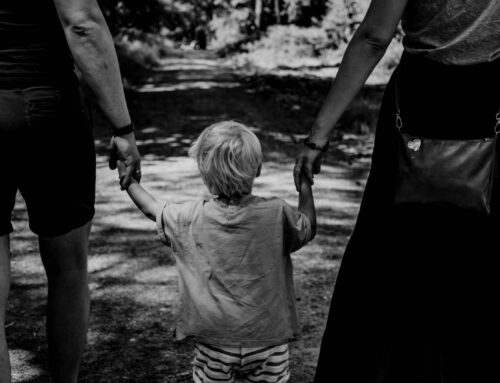Divorce is considered the third most stressful life event (Holmes & Rahe Scale). Divorce is 73/100 in Holmes and Rahe Stress Scale. Few life events are more severe in terms of level of stress. Divorce creates losses and changes to so many areas of your life. And while you have to deal with the emotional pain and financial stress you still need to go to work, take care of your kids and your home, and gather tons of information for your attorney or mediator….all while not being able to sleep! Given that this is a high stress transition, I want to offer some tips and tools for how to cope with divorce stress.
Every day in my professional practice, I talk to people navigating divorce. I’ve studied the science behind stress, loss, and growth through challenge and used this valuable information to highlight strategies for divorce recovery. Divorce is stressful. There’s no way to avoid some degree of loss and pain; however there are ways to cope with the pain and minimize the amount of ongoing suffering, conflict and resentment that keep people stuck. This is no easy task! You are having to make important decisions for yourself, your finances, and your family at the very time that you are emotionally overwhelmed and grieving. Essentially needing to be at your best when you feel at your worst! This information can help.
Here are five strategies for coping with divorce stress. These strategies not only provide healing and coping tools, but also set you up with skills and perspectives that support resilience across a variety of life and relationships challenges.
Create a Team
Time to circle the wagons and gather your professional and person support network. This is not a process to go through alone. The care and support of others is an important stress management tool.
Your professional team may include legal, financial, and mental health or other personal support professionals such as the ones listed below:
- Legal Team: attorney and/or mediator
- Financial Team: (may include, depending on your needs) financial planner, CPA, CDFA, QDRO for division of retirement assets, realtor, mortgage broker, business valuation)
- Personal: therapist, coach, consultant, child therapist or specialist)
You will also want to gather your personal support team. These are your ride or die people and community folks available to support you emotionally and practically and who can lend a helping hand in any number of ways.
- Personal: family, friends, people willing to provide childcare, co-workers, spiritual advisors)
A note about your personal support team–choose people who will not fan the flames of drama and conflict. You have enough inner turmoil and strong feelings without someone close to you throwing kerosene on a fire. Consider those with a calm demeanor, a balanced perspective, and a tendency toward equinimity.
Take care of your feelings and grief
I do believe emotions are the biggest culprit in divorce becoming high conflict and costing thousands of extra and unnecessary dollars, damage to kids, and personal suffering. Your feelings of hurt, anger, disbelief, sadness and everything in between are understandable and normal. When emotions are managed it is the single biggest factor that can impact your divorce adjustment. Managing emotions allows you to have greater personal control, make decisions for your future that are proactive, not reactive, and negotiate with less conflict with your spouse and future co-parent.
Even if you are the person initiating the divorce, it is common to experience feelings of sadness and loss. It is helpful to name your grief and allow yourself time to experience all of the thoughts and feelings related to letting go. This is not a “one and done” thing. Grieving happens over time, in fits and starts. Your sad feelings are telling you that you have lost something or things that matter to you. The sooner this is acknowledged, the sooner you are on your way to healing.
- Name what you will miss and not miss
- Name the full variety of feelings you experience
- Soothe your feelings: Think of ways that are physical and incorporate your 5 senses, breathing, and reaching out to others
- Pause long enough to soothe so you can shift from reactive emotions to your thinking brain (you will need to calm down so you can make good long-term decisions)
- Practice self care: Sleep, Rest, Nutrition, Exercise, Enjoyable activity, Social connection
Manage your thinking
High stress can distort our thinking and perspective like we’re looking into fun house mirrors; you know the ones that distort how you look? Big feelings and big stress are distorters. Increased awareness of common thought distortions can help you challenge them.
Look out for
- Self referenced opinions and judgments viewed as facts or the only reality
- Victim-perpetrator dualities encourage blame and finger pointing
- All-nothing language
- Over generalizing
- Catastrophizing
- Personalizing
Antidotes to distorted thinking
- Perspective taking (Your own, others, and separating facts from opinion)
- Notice your triggers: Self-regulate and don’t take the bait
- Challenge your thinking
- Honest self evaluation
Support your children (if you have children)
If you have children you are, no doubt, worried about their adjustment to the news and the transition. There’s a lot you can do to help them cope. Below are three factors that parents can directly influence that affect child adjustment.
- Strong Parent-Child Relationship: Strong attachment and emotionally attuned parenting supports child adjustment. Authoritative parenting that focuses on loving connection and reasonable, clear, consistent limits is helpful to children.
- Parent’s Personal Divorce Adjustment: Parents that continue to be available (physically and emotionally), continue to attune and meet needs and set loving limits show children they have not been abandoned during the transition. Parents that model adaptive coping in response to the divorce stress demonstrate to children how to cope with life challenges and that they will be okay. That means, taking care of your own emotions, grief and stress in healthy ways will benefit your children!
- Conflict Between Parents: Parental conflict predicts disruptions to child development and predicts negative effects on children’s social, emotional, behavioral and academic functioning. Co-parents that demonstrate an ability to communicate, coordinate, respect each other, and keep conflict low support their child’s divorce adjustment. Make extra effort to learn and use these skills.
Resolve losses and adjust to your new life
- Grieve, make meaning, let go: consider a “balanced view” of yourself and your former spouse that shifts from fault to each person’s contribution. Offer yourself and each other compassion. Let go of resentments to lighten your own psychic load.
- Learn from the past: What can you learn about yourself from the relationship? What were the relationship dynamics and what was your contribution? You now know what your personal work is and can choose to focus on upleveling from your experience.
- Learn to enjoy your alone time: you are great company to yourself! When you can enjoy your own company you will never settle for less than you deserve, because you are not choosing from a place of loneliness. Create a full life and love yourself! Your future choices in partners will improve.
- Grounding to familiar and comforting routines you intend to keep: familiar routines can offer comfort during times of stress and change.
- Developing new routines, habits and interests: Explore new habits and interests. Be intentional about how you want to live your life and start one step at a time.
- Set goals for yourself: Looking into the future, even 3 months or 6 months or one year helps you move forward. Break down goals into small and achievable, action steps that you can take. Be proud of yourself for moving forward with grace and dignity!
More resources to help you cope with divorce stress
Family Transition Coaching and Consultation
Divorce Meditations for Healing and Growth
The Quick Guide to Co-Parenting After Divorce: Three Steps to Your Children’s Healthy Adjustment
The Talk: A Caring and Confident Approach to Telling the Kids about Your Plan to Separate or Divorce






